News
Marketing your Business as Green: Strategies for Success
Why market your business's sustainability?
In the past, most businesses and corporations were primarily motivated to reduce their environmental impact due to regulatory standards. Consumer behavior did little to influence or drive market changes as there was a lack of transparency and awareness around the environmental impact of products purchased. However, the tides of consumer awareness are changing. As climate change effects are becoming increasingly obvious, consumers are seeing their purchases in a different light. Data collected from a Pew Research Poll, indicated that, "71% of Americans have experienced an extreme weather event in their community within the past year," further exemplifying that climate change is no longer a distant or futuristic concept.
With this new and increased awareness about the impacts of human activity and consumption on the planet's climate and ecosystems, many Americans now fall under the "conscious consumer" category. This doesn't mean that these consumers have stopped buying products altogether, but it does mean that a growing percentage of U.S. consumers will not consider purchasing a product if they don't feel comfortable with the sustainability standards and practices of the company.
Greenwashing
In 1986, an environmentalist named Jay Westervelt coined the term greenwashing. Greenwashing has many definitions, but in essence, greenwashing is an intentionally misleading marketing practice that targets well-meaning consumers to buy products that they would not otherwise purchase if they understood the true environmental impacts associated with the company and product.
Avoiding greenwashing is vital to building your customer base of conscious consumers. Doing so often requires research about the materials, equipment and processes that you use. The more informed you are, the better you can convey your passion and commitment to sustainability. Conscious consumers actively conduct research and scrutinize claims about environmental standards and impacts, so possessing accurate information and knowing how to effectively communicate it is essential.
Transparency is extremely important to conscious consumers. Business sustainability is not about achieving perfection and then calling it quits. It demands ongoing learning and improvement. Instead of trying to hide weaknesses about your current sustainability work, focus on being open and honest about any limitations that you currently have and state your business's future goals to improve.
Check for third-party certifications for businesses and for your industry
If you aren't currently a Clark County Green Business, now is the time to explore getting your certification. The certification process is completely free to businesses within Clark County. We also have many free resources and information available to assist you in your green initiatives.
Additionally, you can find other certifications and verifications that are available to businesses like the B-Corp certification, and other more industry-specific groups like the Green Restaurant Association and Practice GreenHealth. If you receive materials, ingredients or other items from suppliers, consider the third-party certifications that those companies and products have. Dismiss any companies or products that use
Be prepared to commit to sustainability for the long-term
Ultimately, consumers want to put trust into a brand's sustainability practices and that takes time, transparency and consistent reassurance. An occasional social media post or a certification on a tag isn't going to be enough to draw attention to how green your brand is, or build customer trust over time. Consumers want sustainable practices to reflect their values and address the concerns that they have for the environment. This further emphasizes how important it is for brand communications about sustainability to be authentic and values-based, rather than seeming to be just another short-term gimmick or marketing strategy.
Want access to more business sustainability marketing resources?
Join us 8:30 to 10 am Wednesday, March 20 at Heritage Farm for our next Clark County Green Business Morning Blend with guest speaker Kayla Anderson from Riparian Media. Kayla will be speaking about her experience with corporate social responsibility, values-based messaging and social media marketing strategies and tools. Register here!
Also, don't forget to check out the Clark County Green Business promotion toolkit to get some additional inspiration on how to promote your Green Business certification. If you are not currently certified, but would like to know more, send an email to info@clarkgreenbiz.com.





